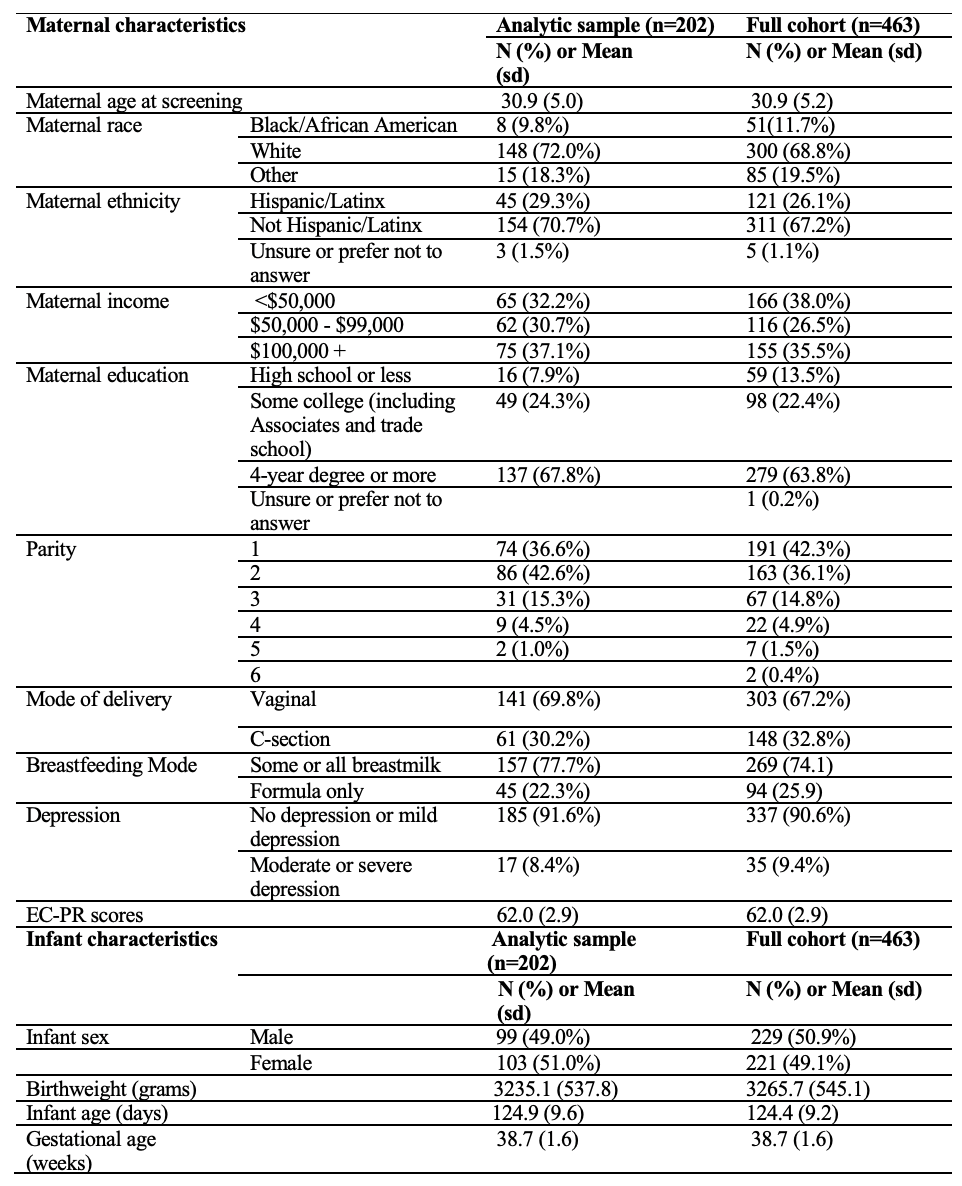General Pediatrics
Session: General Pediatrics 2
245 - Investigating the Association Between Mother-Infant Connection and Infant Feeding Practice at 4 Months
Friday, May 3, 2024
5:15 PM - 7:15 PM ET
Poster Number: 245
Publication Number: 245.283
Publication Number: 245.283

Michelle Rodriguez, MPH (she/her/hers)
Program Coordinator
Columbia University Vagelos College of Physicians and Surgeons
Teaneck, New Jersey, United States
Presenting Author(s)
Background: Maternal emotional state after delivery, level of attachment, and level of bonding to the infant have been associated with co-regulation of physiologic and behavioral responses between the mother and infant. However, it is not yet known how patterns in mother-infant emotional connection may impact infant feeding practice.
Objective: To determine the association between mother-infant emotional connection and infant feeding practice at 4 months.
Design/Methods: Secondary analysis of the prospective, longitudinal COVID-19 Mother-Baby Outcomes (COMBO) study was conducted. As the main predictor, mother-infant emotional connection at 4 months was measured via the maternal-reported 13-item emotional connection-parent report (EC-PR), a novel parent-reported screening tool of mother-infant emotional connection adapted from the objective Welch Emotional Connection Screen (WECS) assessment validated in preterm infants (Mother WECS Cronbach’s α=0.82). Responses were coded on a 5-point Likert scale, with higher scores indicative of higher levels of mother-infant emotional connection. The main outcome of infant feeding practice at 4 months was maternal reported via questionnaire with five potential responses recoded into “some or all breastmilk” vs. “formula”. Binomial logistic regression estimated associations between mother-infant emotional connection and infant feeding practice, adjusting for covariates chosen a priori and statistically significant on Spearman rho correlations (p < 0.10); the final model adjusted for maternal education.
Results: Two hundred two mother-infant dyads from the large ongoing COMBO initiative had complete data at 4 months and were included in the analytic sample. Average maternal age was 30.9 years (SD=5.0), 77.7% of mothers breastfed, 51% of infants were female, and average gestational age was 39.3 weeks (SD=1.5). There was no statistically significant association between EC-PR scores and breastfeeding at 4 months [adjusted odds ratio [AOR]: 2.99; 95% confidence interval [CI]=0.75-1.49).
Conclusion(s): EC-PR scores were not significantly associated with infant feeding practice at 4 months. The EC-PR is a novel approach to mother-infant relational health that has implications for infant feeding services, prenatal care, and postpartum care. Future research in a larger sample that will longitudinally assesses fluidity in emotional connection, through use of both the subjective EC-PR and the objective WECS assessment, and changes in infant milk feeding practice from birth onward is required.

